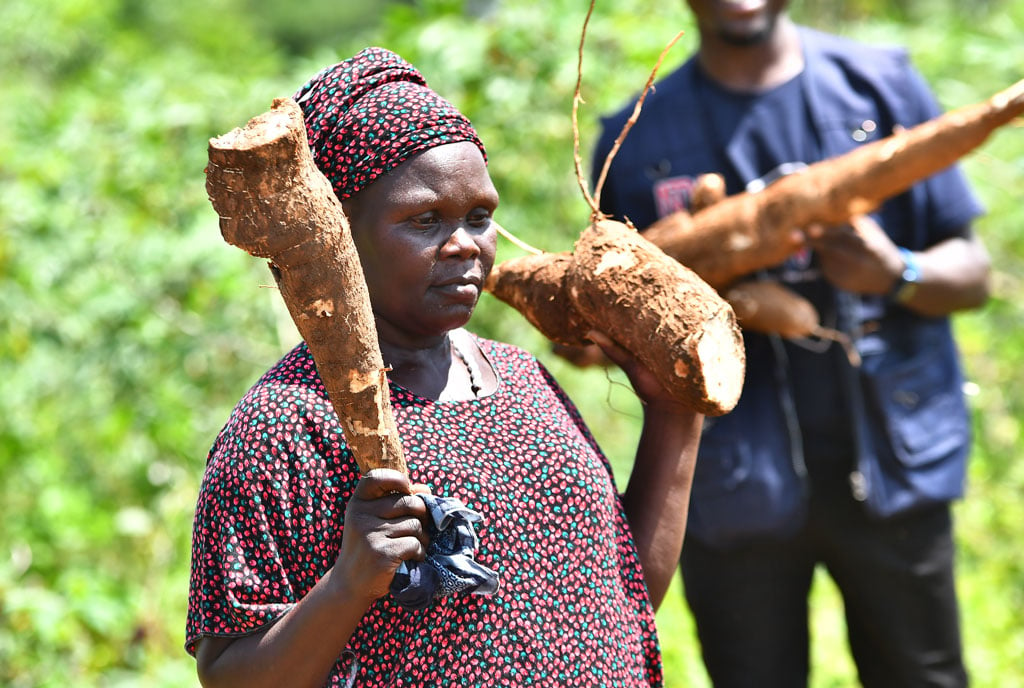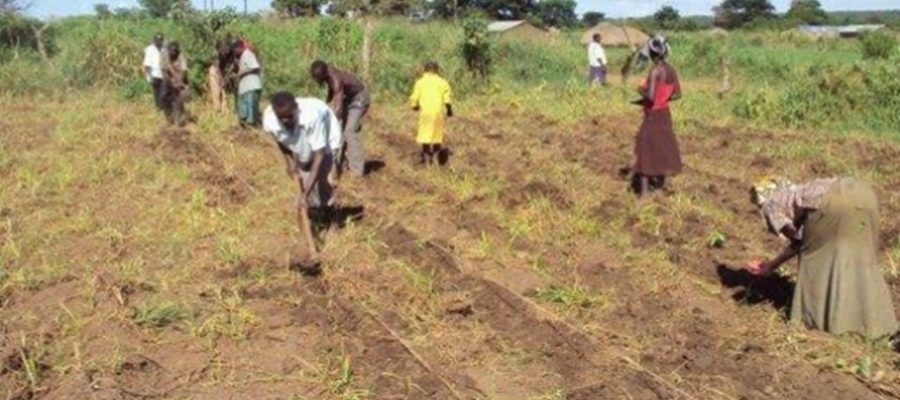Livelihoods, food security and job creation
Food Security Strategies
- Strengthening local food systems
- Sustainable farming
- Addressing climate change
- Ensuring fair trade practices
Livelihood Strategies
- Sustainable agriculture
- Community participation
- Capacity building

Livelihoods, food security and job creation
Uganda as a country faces several socio-cultural, economic, and political challenges, which perpetuate high levels of poverty and inequality. This limits the participation of vulnerable groups, particularly women, youth, and children in economic decisions that affect them. It limits their access to opportunities and resources and makes them more prone to risks, shocks, and other vulnerabilities.
Village Synergy works to ensure that vulnerable women, youth, marginalized men, and other vulnerable groups in a range of Ugandan livelihood settings are economically empowered, enjoy their food rights, and have increased incomes.
We empower women with information on their land & seed rights so that they can push for the formulation and implementation of gender-sensitive policies that enable them access to and control over economic resources.
We campaign on climate change issues to strengthen women’s food producers and achieve resilience in communities to the effects of climate change.
We address youth employment through vocational and life skills, training, and mentorship while lobbying for changes in the education system.
We research issues like unpaid care work that hinders women from being economically engaged and use the evidence to push for practice changes.

Village Synergy is focused on addressing the following
Policy gaps.
The Focus is on influencing the formulation and implementation of relevant policies. Interest is in the participation of women and youth as well as in the attitude change of the rights holders towards economic realities in the country. Building on evidence from our program footprints in the rural communities, we facilitate and engage at local, and regional as well as link with regional and national processes.
Markets & Value Chains
focuses on Influencing both market and non-market actors to provide an enabling environment for farmers and traders; strengthens market linkages between the different actors, promotes gender-sensitive value chains, engages actors, including the private sector in promoting business models that benefit, especially women and youth, and builds the capacity of farmers, groups and cooperatives to produce for the market.
Gender inequalities
Strong focus is put on addressing the underlying factors of gender inequalities. Gender Action Learning System (GALS) methodology is integrated and scaled up to ensure that women's rights are at the center of all programming as well as to address the social hindrances to women’s participation in decision-making over productive assets. Campaigns to address violence against women at all levels are conducted and linked to regional and national efforts.
Impact of Climate change.
Increases resilience of the local communities, especially women, by promoting the range of livelihood options for the communities we work with. We promote Disaster Risk Reduction models that help vulnerable women, youth, and men to ‘thrive’ despite the situation of uncertainty.
Youth Unemployment
Strives to increase productivity and opportunities for rural, urban, and peri-urban youth living in the greater north through increased livelihood options by piloting innovative interventions that increase skills and facilitate access to new technologies including ICT to create employment opportunities for female and male youths. The intervention outcomes contribute to evidence for policy influencing at the national level.